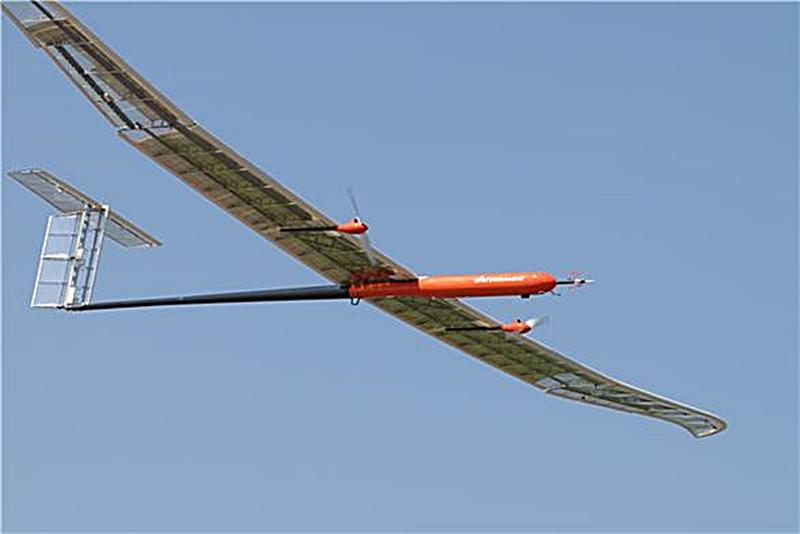By Xu Aiying and Lee Jihae
Photo and video = Korea Aerospace Research Institute
The Korea Aerospace Research Institute (KARI) on Aug. 26 announced that its unmanned Electrical Aerial Vehicle-3 (EVA-3) flew for a domestic record of 53 straight hours on solar power at high altitude.
With a wingspan of 20 m, a body 9 m long and weight of about 66 kg, the EAV-3 ran for 16 hours at an altitude of 12-18 km in the stratosphere in setting the mark.
The previous record was 90 minutes in 2016 at an altitude of 18 km.
The world record for the longest continuous flight came in 2018 as the Zephyr, an unmanned aerial vehicle produced by Airbus of Europe, flew for 26 straight days.
KARI developed a high-efficiency battery pack that enables flight at high altitudes and technology for an ultra-light but highly sturdy structure. Its enhancement of communications efficiency enabled real-time reception of high-definition video even at a distance of 50 km.
The EAV-3 is a drone that uses sunlight to refuel. It can fly in the stratosphere for more than 12 km and can perform tasks in real time related to surveillance of illegal fishery, communications transmission, fine dust and weather through cheaper and more eco-friendly methods. Such functions are the reasons developed countries are competing to develop technology in this field.
KARI will continue to test aerial vehicles that can fly at altitudes of 12 km or higher in the stratosphere for several months to perform a variety of duties such as observe the ground and weather, collect data on the atmosphere, send real-time videos and relay communication. The institute will also promote the commercialization of technology for high-altitude unmanned aerial vehicles powered by solar energy.

The Korea Aerospace Research Institute on Aug. 26 said its unmanned aerial vehicle EAV-3 flew for a domestic record 53 straight hours at high altitude.
xuaiy@korea.kr